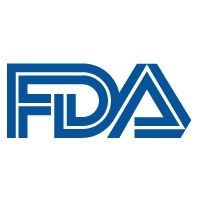FDA Approves Nusinersen for Spinal Muscular Atrophy
The FDA has approved nusinersen as a treatment for children and adults with spinal muscular atrophy (SMA), an often fatal genetic disease affecting muscle strength and movement.

The US Food and Drug Administration (FDA) has approved nusinersen (Spinraza) as a treatment for children and adults with spinal muscular atrophy (SMA), an often fatal genetic disease affecting muscle strength and movement.
Nusinersen, which is the first agent approved to treat SMA, is an injection administered into the fluid surrounding the spinal cord. The efficacy of the agent in patients with infant-onset SMA was established at an interim analysis of the phase 3 ENDEAR trial for patients diagnosed before 6 months of age who were less than 7 months old at the time of their first dose. Efficacy in later-onset disease was established in open-label trials.
At the interim analysis of the ENDEAR study, which included 82 evaluable patients, 40% of those treated with nusinersen had an improvement in motor function versus none in a control arm of untreated patients. Findings from the open-label studies supported the clinical efficacy for nusinersen, although there was not a control arm. The efficacy seen in these studies was similar to the infantile-onset patients, according to the FDA.
“There has been a long-standing need for a treatment for spinal muscular atrophy, the most common genetic cause of death in infants, and a disease that can affect people at any stage of life,” Billy Dunn, MD, director of the Division of Neurology Products in the FDA’s Center for Drug Evaluation and Research, said in a statement. “As shown by our suggestion to the sponsor to analyze the results of the study earlier than planned, the FDA is committed to assisting with the development and approval of safe and effective drugs for rare diseases and we worked hard to review this application quickly; we could not be more pleased to have the first approved treatment for this debilitating disease.”
Overall, 170 patients were treated across studies that led to the approval for nusinersen. This included the interim analysis of the phase 3 ENDEAR trial, which enrolled 122 total patients with infantile-onset SMA. The open-label trials were for patients with pre-symptomatic and symptomatic disease or those with, or likely to develop, Types 1, 2, and 3 SMA.
In the analysis of ENDEAR, a statistically significant improvement in motor milestone response was seen with nusinersen versus those who did not receive treatment (40% vs 0%; P <.0001), according to Hammersmith Infant Neurological Examination (HINE). Fewer patients treated with nusinersen had died at the time of the analysis (23%) compared with the untreated patients (43%).
The most common adverse events with nusinersen were upper respiratory infection, lower respiratory infection, and constipation. The FDA approved the drug with warnings and precautions for low blood platelet count and renal toxicity. Additionally, neurotoxicity was observed in animal studies.
Data were consistent across other efficacy endpoints, with a consistent benefit in favor of nusinersen. Detailed interim results from ENDEAR will be presented at the British Paediatric Neurology Association Annual Conference in January 2017, according to Biogen, the company developing the therapy.
“With the approval today of Spinraza, the future for those affected with SMA has changed. We are especially pleased that this sophisticated and rigorous clinical development plan has resulted in a broad label that may offer access to many patients,” said Kenneth Hobby, president at Cure SMA. “This has been a story of all groups—families, researchers, companies and the FDA–working together as one community.”
Nusinersen was approved following a fast track designation, orphan drug designation, and a priority review. Biogen expects the drug to be available for shipment within one week.